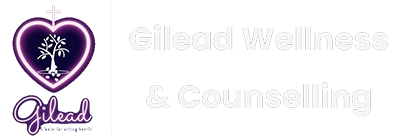The word “therapy” is as dreaded, if not more, as the word “covid.” We don’t want either of them to be associated with us in any form. Some of us even believe, that we would be ostracised, if the world finds out if we had gone through some sort of therapy.
One reason could be the way we have come to associate the word “therapy.” This word is mostly used as an insult or as a derogatory term when we disagree with someone’s opinion, performance or behaviour. We quickly lash out at them saying, “Boy, you need therapy!” And this phrase, as if by a magical stroke, instantly wipes out the numerous benefits therapy can offer.
What does therapy really mean?
Therapy, also known as psychotherapy or counselling, is the process of addressing undesirable behaviours, beliefs, feelings, somatic responses and relationship issues with the help of a therapist. And there are many forms of therapy available to address these issues.
Therapy helps us become the best version of ourselves by helping us lead a peaceful and productive life. Through therapy, we can change self-destructive behaviours and habits, address painful feelings, and improve our relationships & work efficiency.
When do you need therapy?
We generally think therapy is only for people who are mentally afflicted. Nothing could be farther from the truth. Everyone in this world can benefit from therapy at certain points in their life. Following are some signs to watch for even when you aren’t mentally tormented.
- When you feel your life is overwhelming: Do you become irritated with even the slightest of sound around you? Do you find the sudden deluge of emails in your inbox quite annoying? Stress can rattle anyone of us. But how you react to stressors – and how that’s changed over time – can be a great indicator as to whether you need therapy. This becomes even more important, if you notice any change in mood, sleeping pattern and decision-making abilities.
- When you go through a major life transition or experience a traumatic event: Sometimes, you can go through significant life transitions like a major accident or the loss of your loved one or events such as the on-going pandemic. This can be stressful or induce anxiety as you approach such an event. Therapists can help you feel less anxious and overwhelmed by teaching you self-awareness and coping skills.
- When you are unable to get rid of destructive habits or addiction: At times you realise some of your behaviour is unhealthy or unproductive. But then you aren’t able to get rid of that no matter how hard you try. Therapists can help break these patterns by identifying the root cause or triggers underlying the pattern.
- When you are unable to make progress in your life or career: All of us feel sad or irritated or angry or tired one time or the other. But if you feel these emotions are affecting your relationship goals and work output, then seeking therapy is a wise move. Therapists can help you understand the changes happening within and around you, your self-limiting beliefs and how to get back to functioning more optimally.
- When you need assistance to resolve a relationship-threatening issue: Whether it is trying to understand the root cause of your own maladaptive behaviour or finding a resolution to an issue that is causing strain in your relationship or family, undergoing couple counselling or family therapy is a wise investment. Therapists can help facilitate productive conversations and problem solving among your (warring) family members.
- When you are suffering from a serious physical health condition: Sometimes, we believe or act, as if there is no connection between our mind and body. But any major physical illness not just affects you physically but also emotionally and socially. Therapists can help us make significant adaptations to our usual lifestyle and teach new methods to cope with the uncertainties of life.
- When you need someone neutral and unbiased to offer you a new perspective: Friends and family, if one is fortunate to have, is a great support system. But then talking with a therapist isn’t the same as talking with your friend. A therapist is neutral and unbiased while offering their opinion or diagnosis, doesn’t get exhausted or bored listening to your lengthy monologue and can keep your case detail confidential.
So you see therapy is not just for people ailing with a serious mental health issue. It is also for people, who wish to keep improving their lives and look for better and efficient ways to perform their daily tasks. But then this calls for a growth mindset and a burning desire to present the best version of yourself every day – both at home and office.


